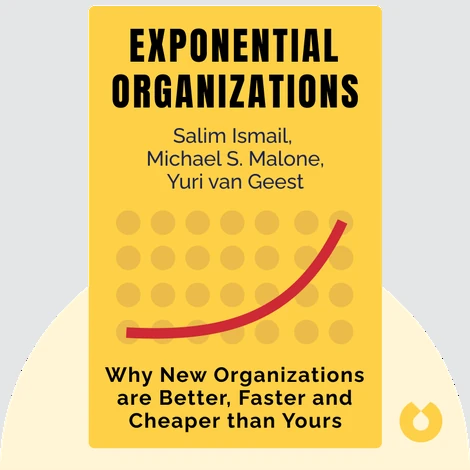Exponential Organizations, that live and thrive by harnessing data in this digitized world, can grow at a scale and speed, way beyond their size. They have a larger purpose, know how to engage ecosystem, build rich interfaces with the world and provide a personalized offering that is easy to access.
* * *
This is one of the best business books that one could read about the band of next gen organizations – born for and thriving in the information economy.
So what exactly are exponential organizations (ExOs) and how do you spot them around us?
My simple explanation goes as follows – any organization that is growing at a scale and a speed that is way beyond its size is an exponential organization. Examples will illuminate this concept better. Think of AirBnB, Uber, TED, Bla Bla Car, GitHub and Tesla.
We are living in the middle of an information revolution that is fundamentally transforming every industry that we know of. And the best part is, we are just getting started.
Exponential organizations live and thrive on information. Once a business is digitized, it is ripe to be taken over by exponential organizations. Think of the hotel industry. It took years for established hotel chains to scale. The industry is disrupted once the information on spare guest rooms at homes is available on line. AirBnB was born and is now the biggest hotelier in the world.
Once an industry is digitized, the marginal costs of production and marketing are close to zero. Thirty years ago you needed GE or Coco Cola to reach a billion users. Today a kid in a garage can do. It took a silicon valley start-up about $15mn to start a business. Those costs have now fallen to $100K. A 150x impact. A 3D printer costed $40,000 in 2007. It now costs $100 to buy one – cheaper than my normal printer. Typical Fortune 500 firm took almost 20 years to reach $1bn market cap. Oculus Rift did that in less than 2 years in 2012. This list goes on. A traditional car company needed $3bn to bring a new model to the market. Local motors is doing that with $3 mn.
The greatest asset of the exponential organizations is their ability to harness ‘information’.
So how to exponential organizations scale so quickly. This is the best of the part of the book. It offers a framework and a rich set of examples.
First, most exponential organizations start with a Massive Transformation Purpose (MTP). And they define MTP that is outrageously ambitious. As a sample. Google’s MTP is “Organizing world’s information”.
They will then engage the external world, create extended organization to get staff on demand, build and cultivate community & crowd, create machine learning algorithms to process data, leverage external assets and actively engage users to retain loyalty.
To get the best from their external world, ExOs will then go about building rich set of interfaces to filter and match data, use real-time and adaptable dashboards to track metrics, experiment constantly using lean approach, provide unlimited but accountable autonomy to employees and leverage social technologies to collaborate better.
ExOs need to find that ideal business model that will offer users a sense of immediacy, personalize their offering, make the offering easy to use and accessible, provide guarantee of delivery, create patronage for users, and allow the users to find them easily.
This book is important to read, understand and find those business models are lurking around the corner that can destroy the companies we work for.
